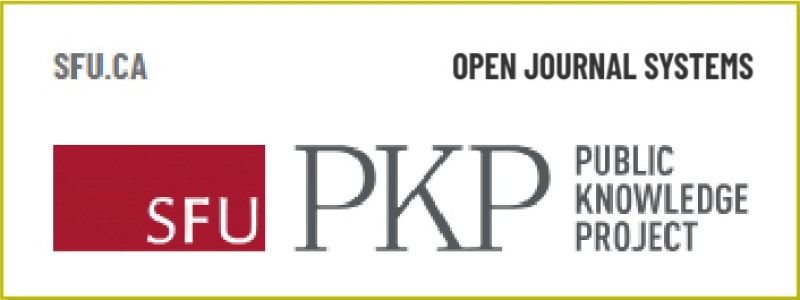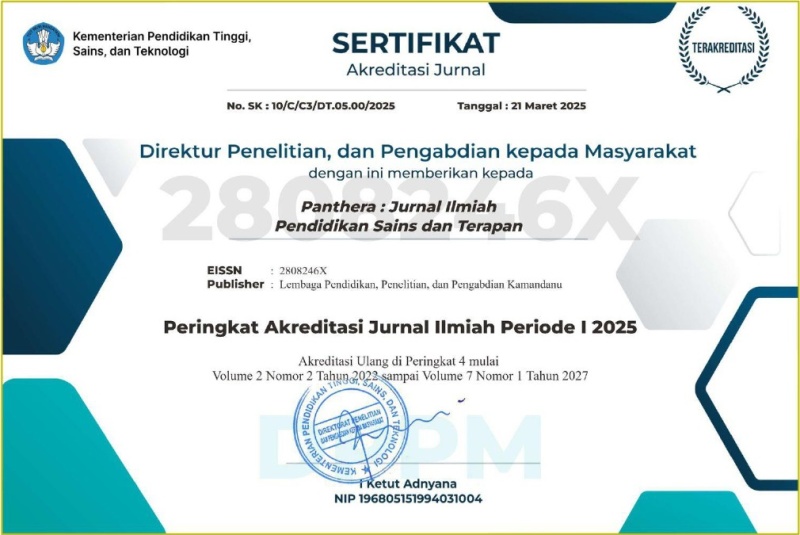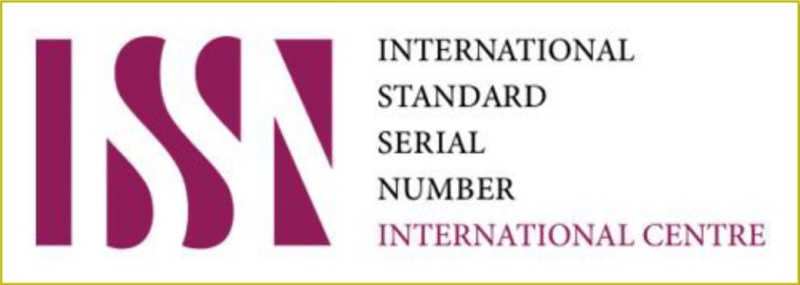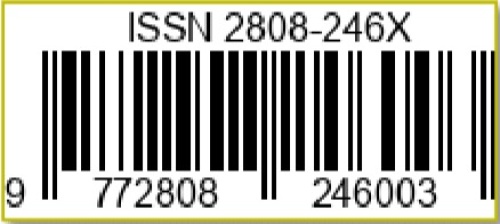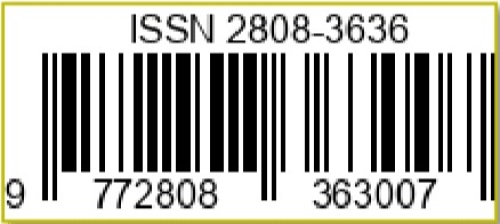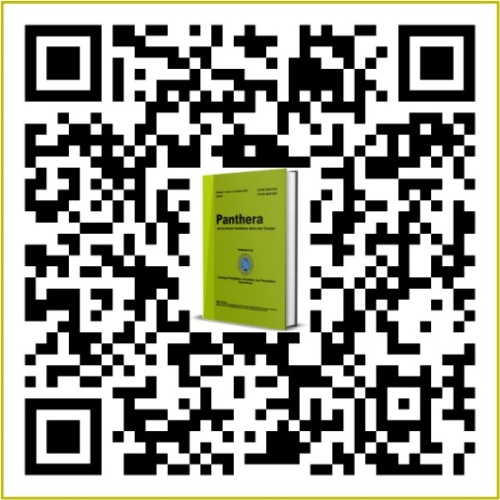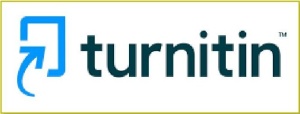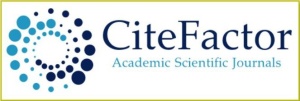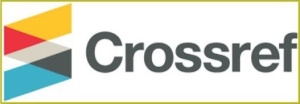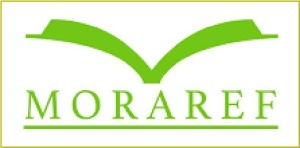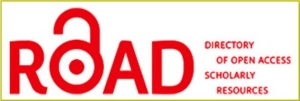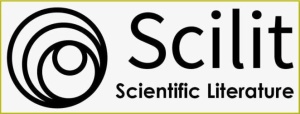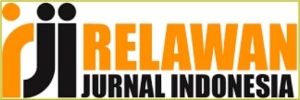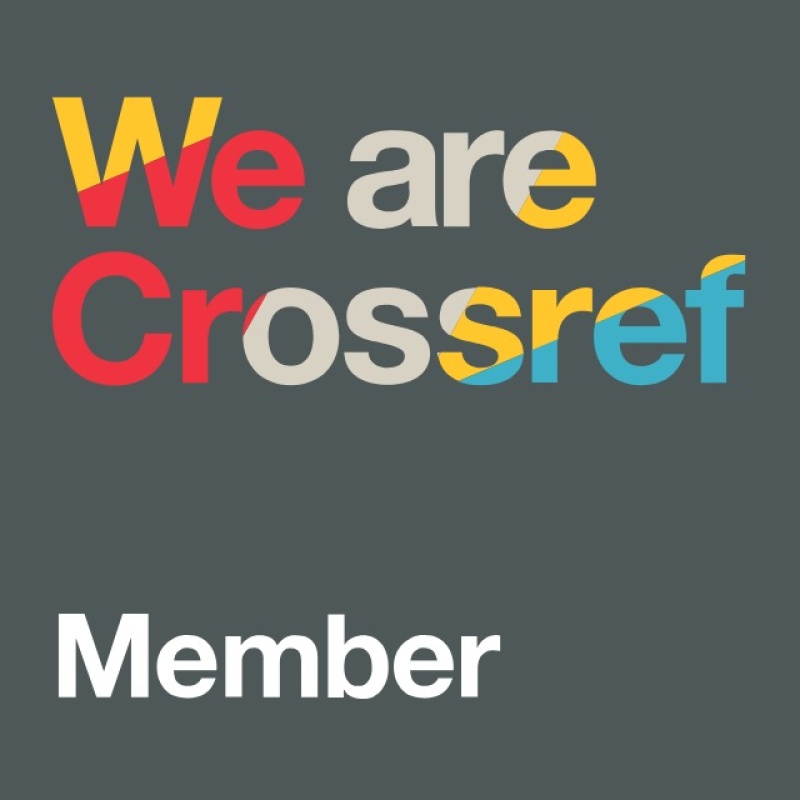Literature Review: Tren Penelitian Kemampuan Berpikir Kritis Siswa SMA untuk Periode 2020-2025
DOI:
https://doi.org/10.36312/panthera.v5i4.637Keywords:
ASEAN, Bibliometrics, Critical Thinking Skills, Scientific Publications, Systematic Literature ReviewAbstract
Critical thinking skills are one of the key competencies of the 21st century that high school students need to have to face global challenges and information complexity. This study aims to review the development trends of critical thinking in ASEAN countries during the period 2020–2025. The research method used Systematic Literature Review (SLR). Data was obtained from the Scopus and Google Scholar databases using Publish or Perish software. Out of the 700 articles found, 65 articles were selected based on topic relevance. Content and bibliometric analysis is carried out with the help of VOSviewer through three visualizations: network, overlay, and density. The results showed a significant increase in publications related to critical thinking skills during the study period with 92.3% published in scientific journals and 7.7% in proceedings. Based on country of origin, Indonesia is the largest contributor, followed by Malaysia, the Philippines, Thailand, and Singapore, showing great concern for the development of critical thinking skills in the ASEAN region. These findings provide an overview of the direction of research and the potential to strengthen learning strategies that support the development of critical thinking skills at the upper secondary level.
Downloads
References
Abrami, P. C., Bernard, R. M., Borokhovski, E., Wade, A., Surkes, M., Tamim, R., & Zhang, D. (2015). Strategies for Teaching Students to Think Critically: A Meta-Analysis. Review of Educational Research, 85(2), 275-314. https://doi.org/10.3102/0034654314551063
Aditya, R., Suhendi, E., & Samsudin, A. (2023). Exploring High School Students’ Critical Thinking Skills Using Active Learning: A Systematic Literature Review. International Journal of Engineering Research and Technology (IJERT), 12(5), 456-462. https://doi.org/10.17577/IJERTV12IS060026
Alshammari, A. (2025). A Systematic Review of Analytical Thinking Skills in STEM Education. Journal of Applied Research in Higher Education, 14(3), 322-337. https://doi.org/10.1108/JARHE-08-2023-0217
Andaryanto, A., Santoso, J. W., & Winarno, A. (2024). Prinsip dan Peran Logika sebagai Dasar Penalaran Ilmiah di Era Informasi. Dewantara : Jurnal Pendidikan Sosial Humaniora, 3(4), 189-198. https://doi.org/10.30640/dewantara.v3i4.3524
Annam, F. K., Lestari, M. I., Okvisari, R., Hasanah, T. L., & Handayani, V. (2024). Pengembangan Keterampilan Berpikir Kritis dalam Penerapan Kurikulum Merdeka di Sekolah Dasar. Jurnal Pendidikan Guru Sekolah Dasar, 1(2), 1-11. https://doi.org/10.47134/pgsd.v1i2.204
Apriliani, E. A., Afandi, A., & Marlina, R. (2021). Memberdayakan Keterampilan Berpikir Kritis di Era Abad 21. In Seminar Nasional Pendidikan FKIP UNTAN 2020 (pp. 1045-1052). Pontianak, Indonesia: Fakultas Keguruan dan Ilmu Pendidikan, Universitas Tanjungpura.
Ayop, S. K., & Yunus, M. M. (2022). A Systematic Review on Instruments to Assess Critical Thinking Problem-Solving Skills. International Journal of Academic Research in Business and Social Sciences, 12(6), 104-115. https://doi.org/10.6007/IJARBSS/v12-i6/13958
Hammond, L. D., Hyler, M. E., & Gardner, M. (2017). Effective Teacher Professional Development. Palo Alto: Learning Policy Institute.
Hashim, N., & Salim, M. (2018). Challenges of STEM Education. Journal of Science and Mathematics Education in Southeast Asia, 41(1), 1-20.
Higgins, J. P. T., Thomas, J., Chandler, J., Cumpston, M., Li, T., Page, M. J., & Welch, V. A. (2022). Cochrane Handbook for Systematic Reviews of Interventions (Version 6.3). New York: John Wiley & Sons, Inc.
Jalinus, N., Nabawi, R. A., & Mardin, A. (2017). The Seven Steps of Project-Based Learning Model to Enhance Productive Competences of Vocational Students. In International Conference on Technology and Vocational Teachers (ICTVT 2017) (pp. 1-6). Yogyakarta, Indonesia: Atlantis Press.
Jandrić, P., Hayes, S., Truelove, I., Levinson, P., Mayo, P., Ryberg, T., & Monzó, L. D. (2020). Teaching in the Age of Covid-19. Postdigital Science and Education, 2(1), 1069-1230. https://doi.org/10.1007/s42438-020-00169-6
Kitchenham, B., & Charters, S. M. (2007). Guidelines for Performing Systematic Literature Reviews in Software Engineering. Keele: Keele University & University of Durham.
Lin, K. Y., & Lin, P. H. (2025). Processes, Challenges, and Teacher Roles in Developing and Implementing Collaborative STEM Curricula. International Journal of STEM Education, 12(1), 1-15. https://doi.org/10.1186/s40594-025-00456-7
Mardliyah, S. Z., Salsabilla, A. P., & Herianingtyas, N. L. R. (2023). Strategi Peningkatan Kemampuan Berpikir Kritis Siswa melalui Learning Community. Awwaliyah : Jurnal Pendidikan Guru Madrasah Ibtidaiyah, 6(2), 102-109. https://doi.org/10.58518/awwaliyah.v6i2.1747
Munn, Z., Peters, M. D. J., Stern, C., Tufanaru, C., McArthur, A., & Aromataris, E. (2018). Systematic Review or Scoping Review? Guidance for Authors when Choosing Between a Systematic or Scoping Review Approach. BMC Medical Research Methodology, 18(1), 1-7. https://doi.org/10.1186/s12874-018-0611-x
Nguyen, T. T., & Tran, H. (2023). Trends in Critical Thinking Research in Southeast Asia: A Bibliometric Analysis. Asian Journal of Education, 15(2), 89-105.
OECD. (2018). The Future of Education and Skills: Education 2030. Paris: OECD Publishing.
Page, M. J., McKenzie, J. E., Bossuyt, P. M., Boutron, I., Hoffmann, T. C., Mulrow, C. D., Shamseer, L., Tetzlaff, J. M., Akl, E. A., Brennan, S. E., Chou, R., Glanville, J., Grimshaw, J. M., Hróbjartsson, A., Lalu, M. M., Li, T., Loder, E. W., Wilson, E. M., McDonald, S., McGuinness, L. A., Stewart, L. A., Thomas, J., Tricco, A. C., Welch, V. A., Whiting, P., & Moher, D. (2021). The PRISMA 2020 Statement: An Updated Guideline for Reporting Systematic Reviews. BMJ Journal, 372(1), 1-9. https://doi.org/10.1136/bmj.n71
Radianti, J., Majchrzak, T. A., Fromm, J., & Wohlgenannt, I. (2020). A Systematic Review of Immersive Virtual Reality Applications for Higher Education: Design Elements, Lessons Learned, and Research Agenda. Computers & Education, 147(1), 1-29. https://doi.org/10.1016/j.compedu.2019.103778
Rahman, N., Azhar, S., & Lee, C. (2021). Enhancing Critical Thinking through Problem-Based Learning in Malaysian Classrooms. Malaysian Journal of Education, 46(1), 45-61.
Rapanta, C., Botturi, L., Goodyear, P., Guàrdia, L., & Koole, M. (2020). Online University Teaching during and after the Covid-19 Crisis: Refocusing Teacher Presence and Learning Activity. Postdigital Science and Education, 2(3), 923-945. https://doi.org/10.1007/s42438-020-00155-y
Richter, O. Z., Marín, V. I., Bond, M., & Gouverneur, F. (2019). Systematic Review of Research on Artificial Intelligence Applications in Higher Education-Where are the Educators? International Journal of Educational Technology in Higher Education, 16(1), 1-27. https://doi.org/10.1186/s41239-019-0171-0
Ritonga, D. R., & Napitupulu, S. (2024). Implementasi Metode Pembelajaran Aktif dalam Meningkatkan Keterampilan Berpikir Kritis Siswa Sekolah Dasar. Education & Learning, 4(1), 38-45. https://doi.org/10.57251/el.v4i1.1292
Rodriguez, A. P., Waltman, L., & Eck, N. J. v. (2016). Constructing Bibliometric Networks: A Comparison Between Full and Fractional Counting. Journal of Informetrics, 10(4), 1178-1195. https://doi.org/10.1016/j.joi.2016.10.006
Siskayanti, W. D., Nurhidayati, S., & Safnowandi, S. (2022). Pengaruh Model Problem Based Instruction Dipadu dengan Teknik Probing Prompting terhadap Kemampuan Berpikir Kritis dan Hasil Belajar Kognitif. Panthera : Jurnal Ilmiah Pendidikan Sains dan Terapan, 2(2), 94-112. https://doi.org/10.36312/pjipst.v2i2.76
Sousa, V. D., & Lima, R. D. (2022). Validity and Reliability in Assessment of Critical Thinking. Educational Measurement: Issues and Practice, 41(3), 56-66.
Downloads
Published
How to Cite
Issue
Section
License
Copyright (c) 2025 Intan Nurul Fitriana & Bambang Subali

This work is licensed under a Creative Commons Attribution-ShareAlike 4.0 International License.
-
Attribution — You must give appropriate credit, provide a link to the license, and indicate if changes were made. You may do so in any reasonable manner, but not in any way that suggests the licensor endorses you or your use.
-
ShareAlike — If you remix, transform, or build upon the material, you must distribute your contributions under the same license as the original.


